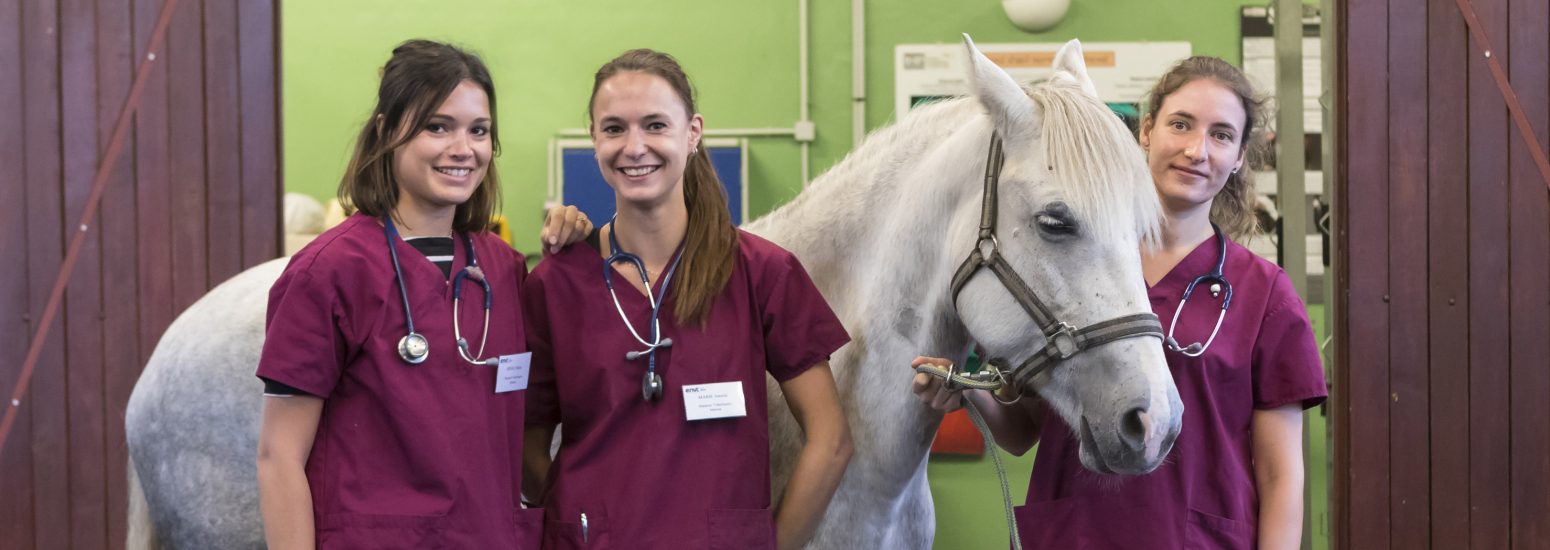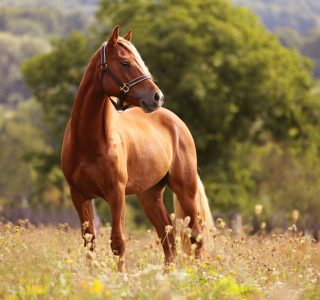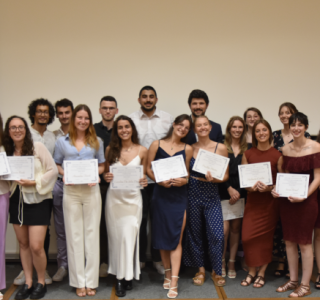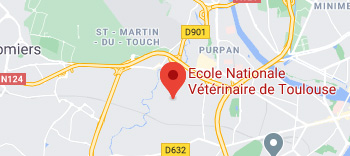The National Veterinary Schools of France offer an internship in equine medicine and surgery. Access to this high-level clinical training is through a competitive examination.
Testimonial
Amélie intern in equine medicine and surgery (2020/2021)
Program
- The year starts on September 1st of the current year and ends on August 31st of the following year with a minimum of 47 effective weeks in the clinic.
- Based on the active acquisition of knowledge, it allows:
- to consolidate the theoretical notions already acquired,
- to acquire certain essential technical gestures,
- to acquire medical reasoning and decision making, in order to become totally independent in the clinic.
- In addition to clinical training, interns attend half-day theoretical training sessions throughout the year. These teaching seminars are devoted alternately to the presentation of clinical cases, or to the presentation of a subject that the interns will have prepared under the supervision of a lecturer, or to lectures given by ENVT teachers or guest speakers. Six seminars per intern (2 clinical cases, 4 syntheses) are thus presented during the year.
- Interns do rotations of 2 to 4 weeks at ENVT’s equine clinic and private clinics in partnership with ENVT:
- Consultations of medicine, ophthalmology, surgery, locomotor pathology (ENVT)
- Hospitalization, intensive care, anesthesia, medical imaging and other complementary examinations (ENVT)
- Emergencies, intensive care, locomotor pathology, anesthesia and surgery (ENVT and/or private clinics under partnership agreement with ENVT)
- Reproduction: one-month rotation between March and June
- Outpatient clinic: two two-week rotations (accredited veterinarians)
- Interns under the supervision of lecturers and assistant lecturers play an essential role in supervision and pedagogy:
- in helping year 5 and 6 students to carry out the clinical and complementary investigations on the animals during consultation or hospitalization.
- in supervising workshops for year 5 and 6 students.
- in managing the relationship with the clients and the referring veterinarians
- in acting as an interface between the latter and the lecturers
- in the quality of care, the respect of procedures and the traceability of interventions: they are responsible, among other things, for the follow-up of cases, of all the acts carried out on horses by year 5 and 6 students and for the maintenance of the medical records
Assessment
- Interns are evaluated at the end of their training by a jury according to three criteria:
- the quality of their performance in the equine clinic (attendance, availability, sense of responsibility, relations with the various partners of the clinic, etc.). This evaluation carried out twice a year is based on a common national grid.
- the quality of their oral and written presentations including a clinical case ready for publication.
- the individual collection of clinical cases and activities (“case log”).
(Any mark lower than or equal to 8 is disqualifying)
A diploma attesting to the completion of the Internship in Equine Clinical Sciences at ENVT is awarded to candidates with an overall average of 10/20 or higher.
No authorization of repetition is granted.
Interns also evaluate the training they receive.
Number of positions offered
6 (program accredited by the DGER)
Admission requirements
- To be registered in A6 in a school of veterinary medicine (subject to validation of final exams)
- To hold the State Diploma of Veterinary Doctor
- To hold of a diploma judged to be equivalent by the selection panel, (for foreign applicants).
Admission procedures
A joint competition for the 4 ENVs will be organized on wednesday 23 february (written computer test and interview), thursday 24 and friday 25 february 2022 interview with the jury) at Oniris, La Chantrerie, Nantes. Candidates will be able to take part in the tests from an examination center (one of the four ENVs, the Faculty of Veterinary Medicine of Liège or St Hyacinthe).
























































































































